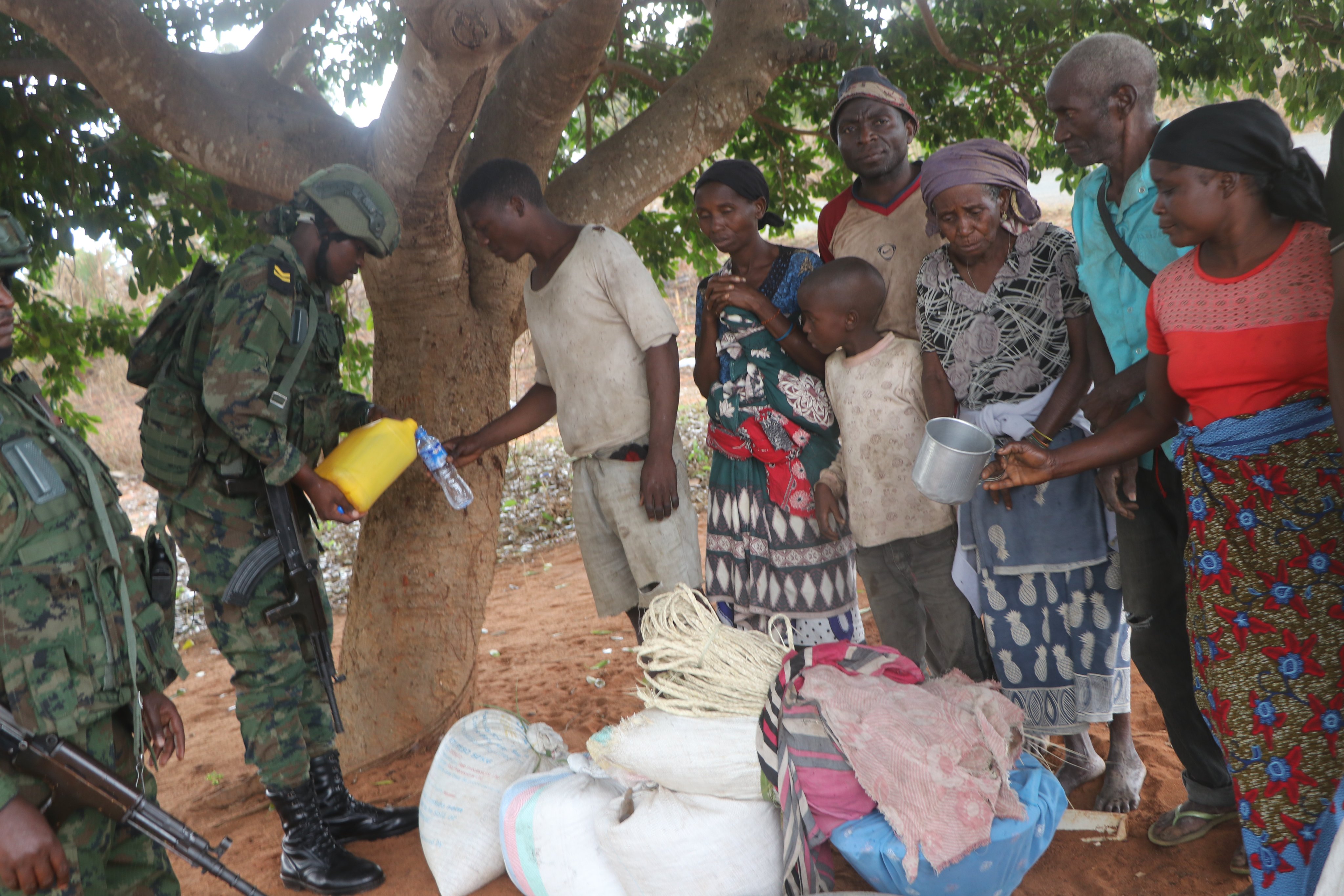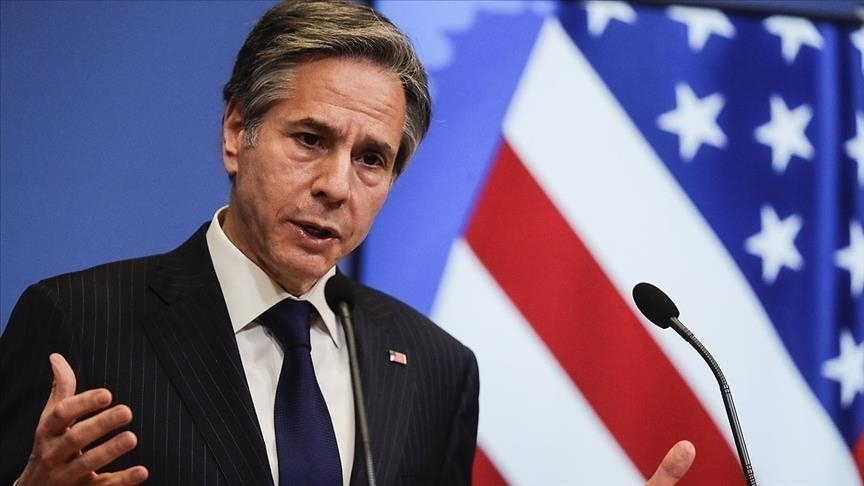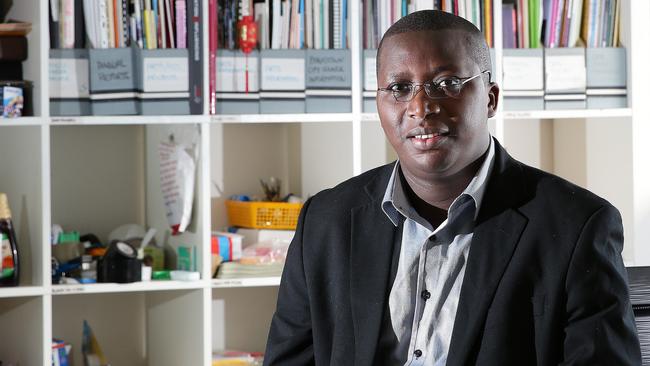International
Anti-Rwanda hate speech spreads
CAR: Political-military opposition groups hell-bent on tarnishing Rwanda’s image
.jpg-20220822074719000000.jpg)
Political-military
opposition groups in the Central African Republic (CAR), mainly supporters of
the rebel Coalition des Patriotes pour l’echange (CPC), are hell-bent on
stirring up protests against Rwandan troops in their country.
They
especially influence anti-Rwanda hate speech akin to what Congolese leaders in
Kinshasa, and their diaspora compatriots have pushed in recent months, and in
the past.
In
August, CPC diehards and their minders mobilised followers in Europe for
demonstrations at the Rwandan Embassy in Paris, France.
Though
minimal, thanks largely to the presence of Rwandan troops – within the UN
peacekeeping mission in CAR and under a special bilateral arrangement with
Bangui – the country continues to face a threat from the CPC whose obvious
mission is to plug the country into a new cycle of violence.
The
rebel coalition is led by the country’s former leader Francois Bozizé, a former
general who seized power in a 2003 coup before being toppled by the mainly
Muslim Seleka rebels a decade later.
Amidst
continued political turmoil, Bozizé fled into exile as a rebel coalition (the
Seleka rebels) overrun the sparsely populated country of 4.7 million people and
took the capital.
He
fled the country, allegedly supporting a mostly Christian militia known as the
anti-Balaka from afar, which resulted in UN sanctions against him. Despite an
international warrant for his arrest, the 75-year-old slipped back into CAR in
late 2019 after years in exile. He announced his presidential candidacy in July
2020. The country's top court barred him, in December 2020, from running
because it determined that he did not satisfy the "good morality"
requirement for candidates. Deadly then clashes erupted after the
constitutional court rejected his candidacy to run for president that year.
Despite
his denials, Bozize heads the CPC, a coalition hastily formed in December 2020
to disrupt the then presidential and parliamentary elections. At the time,
ahead of presidential elections, six opposition armed groups formed a new
alliance, CPC, and launched an offensive against the government. The emboldened
rebel coalition quickly took control of major towns and large areas of the
country and eventually reached the outskirts of Bangui.
Despite
the presence of more than 12,000 peacekeepers from the United Nations
Multidimensional Integrated Stabilization Mission in the CAR (MINUSCA), in
2020, Bangui solicited the help of Russia and Rwanda – through separate
bilateral agreements – to help bolster it’s security forces.
The
CAR government, with Russian and Rwandan military reinforcements, defended
Bangui and mounted a successful counteroffensive. Soon after, the government
army and its allies succeeded in retaking several towns previously occupied by
the armed groups.
Bozizé’s
defeated coalition was punched in the face when the Rwandans especially took
charge of major security operations in the capital – including providing
protection to President Faustin-Archange Touadéra – and strategic facilities in
other key areas. They determinedly repulsed,
time and again, the CPC militia’s attempts to take Bangui from different
fronts.
The
presence of Rwandans in the CAR means Bozizé’s people can never topple the
democratically elected government in Bangui. Bozizé and his people know they
have lost the military battle.
With
help from forces of evil, perpetrators of the 1994 Genocide against the Tutsi
in Rwanda and their Western backers, the Bozizé’ coalition has hanged tact. A
smear campaign against the Rwandan government and army, they hope, will help
drive the very efficient Rwanda Defence Force (RDF) out of the CAR. With the
latter out, Bozizé knows he can take power in a day, and put a halt to
Touadéra’s national rebuilding effort. The ongoing smear campaign is therefore
his last card.
Bozizé
and his henchmen claim that the current Rwanda-CAR relationship will bring more
support to Touadéra to modify the Constitution so as to gain a third term in
office.
A
source in the CAR government told Jeune Afrique that the opposition’s plan does
not end with the protests.
They
also hope to gain allies inside the neighbouring Democratic Republic of Congo (DRC) whose
relationship with both Rwanda and CAR is currently frosty.
For
years now, Rwandan troops have played a vital role in securing the CAR. Besides
ensuring the protection of former president Catherine Samba-Panza, between 2014
and 2016, and ensuring the peaceful presidential election of 2016 won by then
Prime Minister, Touadéra, the Rwandans
also saved the day as the country geared to the December 27, 2020, elections.
Bozizé
and his coalition – comprising foreign mercenaries – again plotted attacks to
derail the democratic process.
But
the Rwandan peacekeepers minding security in the city would not allow that and
the election was a success. People, assured of their security, turned up in big
numbers and cast their vote.
Since
then, Rwanda-CAR relations have flourished.
In
2021, additional troops were sent to CAR under a newfangled bilateral
agreement. These troops’ key task was to secure the main supply route connecting
Bangui, to Cameroon which was blocked by the attacks of the rebel coalition.
The
blockade of Bangui was a rebel tactic to strangle the capital economically and
force the government to the negotiating table. Again, Rwanda came to the
rescue, neutralized the attacks and re-opened the route after only two weeks.
Rwandan
troops have worked towards ending the violence and massacres in CAR.
They
protect civilians, facilitate the delivery of humanitarian aid, and ensure the
protection of President Touadéra, but also have the goal of providing his government the support it needs
for a stable political environment.




